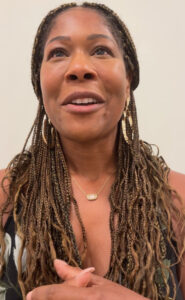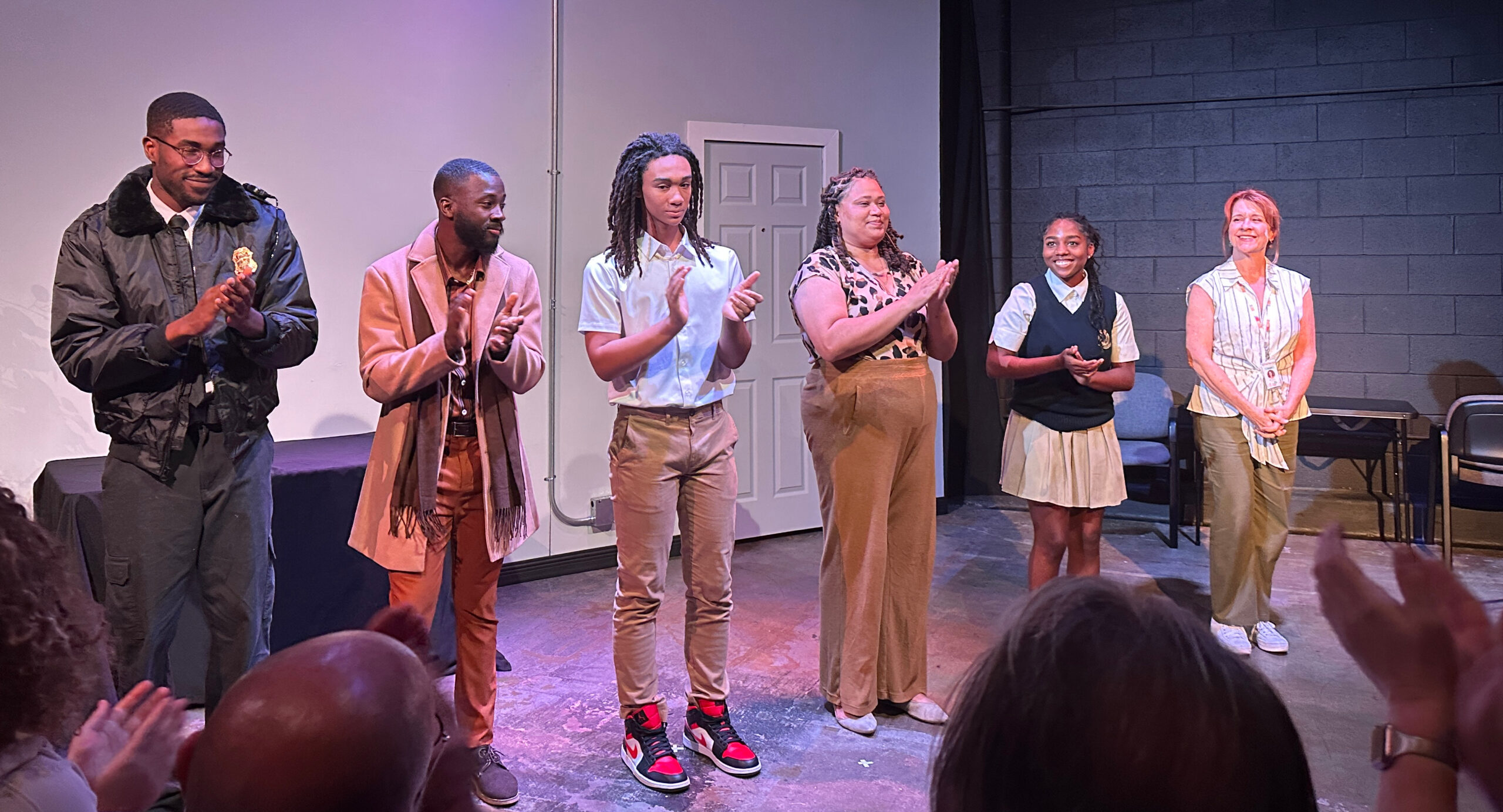The word ‘pipeline’ does not generally embody any sinister connotations, but in this play by Dominique Morisseau, it is very sinister indeed. The Pipeline under scrutiny is the “school-to-prison” one, wherein youth are funneled out of public schools and into the juvenile and criminal legal systems.
“The reason we were inspired to do this play is so we can create awareness,” explained the co-Producer of the play, April Patterson.
The play’s central character is Omari (played by Elijah Brooks), a troubled black teen who keeps pushing the boundaries at school. The trigger for the play is an incident where he pushed his teacher, and this was for Omari the third offense. Will he be expelled and maybe even charged? The relationship he has in the play with his girlfriend and his divorced parents drive the plot.
Omari says he was being targeted by the teacher in a certain lesson, and that he felt agitation and he was being disrespected. His Mother Nya (Chelsea Manasseri) is beside herself with anxiety. “You are not in your space in school, you’re in a collective space. Tell me what will save you!” His response, both to his Mother and later his Father, is a series of messages relayed through the lens of a poem by Gwendolyn Brooks (1917-2000), who was the first African-American to win the Pulitzer Prize (that was in 1950). The text of her 1959 poem We Real Cool is used several times here, with its ominous final line, We die soon.

“What we want people to take away from the play is all the messages Omari was giving them,” said Patterson, “especially the one where he says ‘show up in person.’ These kids, these educators need support from our community so we can stop that pipeline and provide more resources to the teachers, the parents and the kids. It’s a community issue, and that’s what we want to make awareness about – our kids are our foundation and we want to make sure they are going to have a brighter future. Once they get into the pipeline system, there’s not very much of a restoration process for them, we we’re trying to combat all of that, and we hope that whatever part we can do, is a good way to do that.”
Throughout the play, Omari never cracks a smile and quite often sounds robotic. Presumably the character is exhibiting some form of alexithymia, an emotional blindness that prevents a person from articulating their emotional experiences. The playwright’s brilliant solution to this is for him to recite lines of poetry that contain the hidden meanings of what he can’t express in ordinary speech. Omari riffs off the robotic angle by saying the monthly checks he receives from his father appear to be a “robotic routine.” Why doesn’t he just ‘show up in person’ every month?
A psychologist told me “There are many kids like that, that fall by the wayside, because nobody cares or sees it. Many do come from a split home, which makes it difficult. There is a lot of alienation against one thing or another. Parents have no idea how to deal with it, and the schools have services but many kids are not referred.”
The ensemble cast is excellent. Manasseri is compelling as an emotionally fractured Mom and high school teacher; Katherine Sawyer is suitably saucy as Omari’s girlfriend, although I think the playwright gave such a young girl dialogue far too articulate for her age; Godwin Baolgun is the high school security guard with a conscience; Erv Brown plays the disconsolate father of Omari with great empathy, a stark contrast to his son’s personae; and Nancy Gray plays a frazzled white high school teacher to the hilt. She is unapologetically old-school. “Do you remember when parents gave us permission to spank their kids? A good old ass-whooping can teach a lot!” A very fine play, which I strongly suggest you see.

The Alchemy Theatre lobby is decorated for this run with artwork by Rhea Brow, Xavier Alvarado and Steven Mosley. Each expresses a different aspect of what it means to be black in America. The work by Alvarado is shown here.
Caption for the artwork Rulebreakers: Winning the American Game. The artist’s take on Pipeline beautifully echoes resilience, struggle against adversity, and the profound impact and environments within the African American experience. (Text taken from the description at the Alchemy Theatre). Bright areas at the top are due to glare from ambient lighting. All photos with this article are by C. Cunningham.
The play Pipeline, written in 2019, will be performed thru Sept. 30, 2023. Visit the website:
The Alchemy Theatre
www.thealchemytheatre.org
located at 130 Pedernales St, Austin

